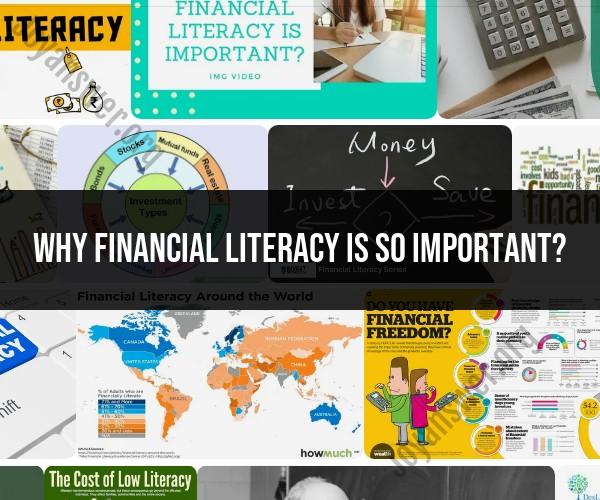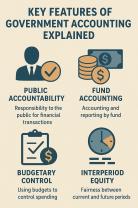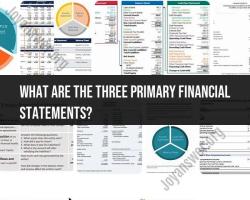Why financial literacy is so important?
Financial literacy is of paramount importance for individuals and society as a whole for several compelling reasons:
Empowerment: Financial literacy empowers individuals to take control of their financial lives. When people understand financial concepts and principles, they are better equipped to make informed decisions about budgeting, saving, investing, and debt management.
Financial Independence: Financial literacy helps people work toward financial independence. It enables individuals to set and achieve financial goals, such as buying a home, starting a business, or retiring comfortably, without relying on external financial support.
Debt Management: A strong understanding of financial literacy is crucial for managing debt effectively. It helps individuals avoid excessive debt, make wise borrowing decisions, and develop strategies to pay off existing debts.
Savings and Investment: Financial literacy encourages saving and investment habits. People who are financially literate are more likely to save for emergencies, retirement, and other long-term goals. They also tend to make more informed investment choices, potentially growing their wealth over time.
Economic Stability: A financially literate population contributes to economic stability at both the individual and national levels. When people manage their finances responsibly, they are less likely to experience financial crises that can lead to economic downturns.
Reduced Financial Stress: Financial stress can have a detrimental impact on mental and physical health. Financial literacy helps individuals better manage their finances, reducing stress and improving overall well-being.
Smart Consumer Choices: Financially literate consumers are less likely to fall victim to scams or make impulsive purchases. They can assess the true cost and value of products and services and make choices that align with their financial goals.
Retirement Planning: Understanding financial concepts like compounding, retirement accounts, and investment strategies is crucial for retirement planning. Financial literacy allows individuals to prepare adequately for their retirement years.
Entrepreneurship: Financial literacy is essential for entrepreneurs and small business owners. It helps them manage business finances, secure funding, and make informed decisions to grow their ventures.
Sustainable Finances: Financial literacy promotes sustainable financial practices. People who are financially literate are more likely to make environmentally responsible choices and support businesses with sustainable practices.
Generational Wealth: Passing on financial knowledge to the next generation helps build generational wealth. Parents who are financially literate can teach their children about money management, setting them up for financial success in the future.
National Prosperity: On a broader scale, a financially literate population contributes to a country's economic growth and prosperity. It leads to a more stable financial system and reduces the burden on social welfare programs.
In conclusion, financial literacy is a cornerstone of personal and societal well-being. It equips individuals with the knowledge and skills needed to navigate the complexities of the financial world, make responsible financial decisions, and work toward a more secure and prosperous future.












